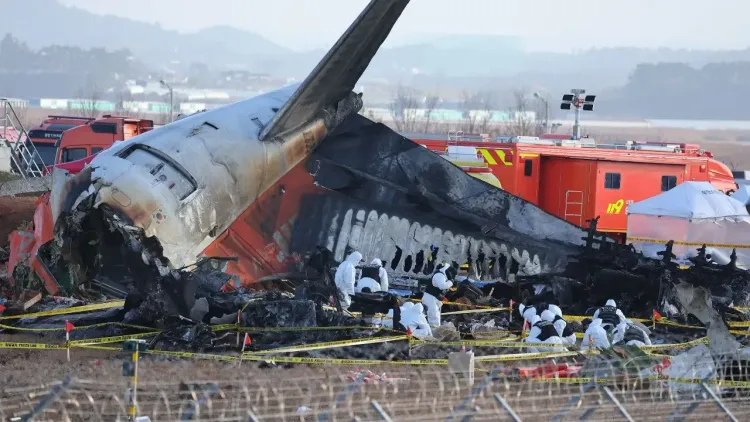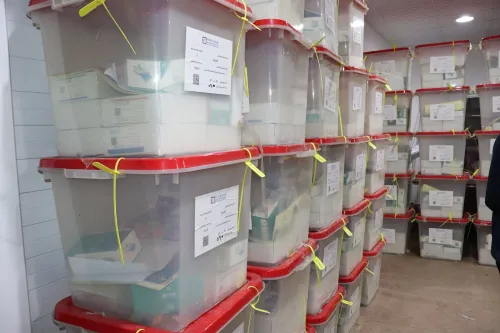Jeju Air Incident Raises Alarms About Aircraft Maintenance Practices

Seoul, Jan 2 (NationPress) Worries regarding maintenance issues faced by low-cost carriers (LCCs) have emerged in the wake of the Jeju Air incident, as reported by industry analysts on Thursday. Data indicates a troubling reliance on foreign services for critical aircraft maintenance, particularly for tasks such as engine repairs.
The recent landing gear malfunction that led to the crash of Jeju Air's B737-800 on Sunday has raised alarms about whether the airline may have prioritized operations at the expense of adequate maintenance time, potentially jeopardizing safety.
According to information from the transport ministry, domestic airlines' overseas maintenance expenditures reached 1.99 trillion won (US$1.35 billion) in 2023, marking a 58.2 percent increase from 1.26 trillion won in 2019, as reported by YOnhap news agency.
For local LCCs, the surge is even more significant, with overseas maintenance costs for budget carriers hitting 502.7 billion won last year, a climb of 63.6 percent during the same timeframe.
The proportion of repairs executed overseas by LCCs stood at 71.1 percent in 2023.
Among South Korean airlines, only Korean Air and Asiana Airlines, which are full-service carriers, possess the capability to conduct major repairs, including engine overhauls, as they operate their own hangars and have maintenance, repair, and overhaul (MRO) capabilities.
Due to the lack of such resources, LCCs must outsource significant repairs, leaving domestic MRO options scarce, with only Korean Air and Korea Aviation Engineering & Maintenance Service providing these services.
Jeju Air's CEO, Kim E-bae, acknowledged this situation in a recent press conference, stating that the airline performs some repairs domestically while outsourcing others to overseas MRO providers.
Experts contend that establishing a strong domestic MRO industry is vital for improving LCC maintenance capabilities.
The global aviation MRO sector is anticipated to expand to $124.1 billion by 2034, yet South Korea's development in this area has been sluggish.
In August 2021, the transport ministry unveiled a plan to bolster the competitiveness of the domestic aviation MRO industry, targeting a local maintenance share of 70 percent by 2024.
However, it wasn't until April of the previous year that the government held the groundbreaking ceremony for the construction of the Incheon Airport Advanced Aviation Complex, a dedicated MRO cluster.
"Most LCCs depend on foreign specialists for major repairs, which can result in cost and efficiency challenges," remarked an anonymous aviation industry insider.










